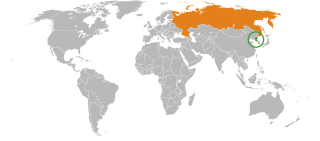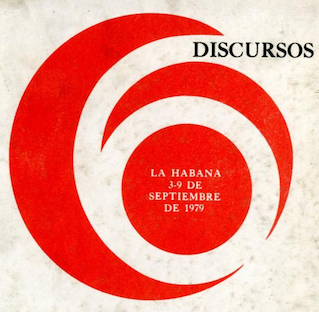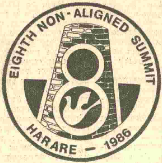
The Soviet Union was the first to recognize North Korea on October 12, 1948, shortly after the proclamation, as the sole legitimate authority in all of Korea. The Soviet Union supported North Korea during the Korean War. North Korea was founded as part of the Communist bloc, and received major Soviet military and political support. The comprehensive personality cult around North Korea's ruling family was heavily influenced by Stalinism. China and the Soviet Union competed for influence in North Korea during the Sino-Soviet split in the 1960s, as North Korea tried to maintain good relations with both countries.

New Zealand–North Korea relations refers to international relations between New Zealand and North Korea. Relations between the two countries have been almost non-existent since the division of Korea. During the Korean War in the 1950s, New Zealand troops fought as part of the United Nations force that repelled the North Korean invasion of South Korea. Since then, New Zealand and North Korea have had little contact, until July 2000 when North Korean Foreign Minister Paek Nam-sun and New Zealand Minister of Foreign Affairs Phil Goff met in Bangkok, leading to the establishment of diplomatic relations in March 2001. The New Zealand ambassador to South Korea based in Seoul is also cross-accredited to North Korea. In 2006, North Korea tested its first nuclear weapon, drawing criticism and suspension of relations by the New Zealand government, which holds a staunch anti-nuclear policy. New Zealand began re-establishing formal relations in 2007, when the New Zealand Minister of Foreign Affairs Winston Peters visited Pyongyang on November 20 to discuss possible political and economic deals with North Korea, on the basis that it started dismantling its nuclear weapons facilities.

Hungary–North Korea relations (Korean: 마쟈르-조선민주주의인민공화국 관계) are foreign relations between Hungary and Democratic People's Republic of Korea (DPRK), commonly known as North Korea. Relations between the two countries existed since the Korean War, but relations have been poor since 1988.

North Korea–Serbia relations are the bilateral relations between Serbia and North Korea.

India–North Korea relations, also called Indian-North Korean relations or Indo-North Korean relations, are the bilateral relations between India and North Korea. Both countries have growing trade and diplomatic relations. India maintains an embassy in Pyongyang, and North Korea has an embassy in New Delhi.

Indonesia–North Korea relations refers to bilateral relations between Indonesia and North Korea. The two countries established diplomatic relations on 16 April 1964. Indonesia is one of the very few countries that still tries to maintain cordial relations with North Korea, despite the widespread international sanctions and resulting isolation imposed on North Korea, compounded with the negative reputation of its human rights, nuclear weapons and ballistic missile programs and Indonesia's publicly more robust engagement and partnership with South Korea.

Iceland–North Korea relations refers to the current and historical relationship between Iceland and the Democratic People's Republic of Korea (DPRK), commonly known as North Korea. Neither nation maintains an embassy in their respective capitals. Instead, the Icelandic ambassador in Beijing is also accredited to North Korea, while the North Korean ambassador in Stockholm is accredited to Iceland. The Swedish embassy in Pyongyang handles visa matters on behalf of Iceland.

North Korea–Singapore relations are bilateral relations between North Korea and Singapore.

The Gambia–North Korea relations refers to the current and historical relationship between The Gambia and the Democratic People's Republic of Korea (DPRK), known as North Korea in the Western World. Hong Son-phy is the accredited ambassador to Banjul.

Egypt–North Korea relations refer to the bilateral relations between Egypt and North Korea. Egypt has an embassy in Pyongyang whilst North Korea has an embassy in Cairo.

The Socialist Federal Republic of Yugoslavia was a founding member of the Non-Aligned Movement, an international groupation established to maintain independence of countries beyond Eastern and Western Bloc from the major Cold War powers. Belgrade, the capital of Yugoslavia, hosted the First Summit of the Non-Aligned Movement in September 1961 and the Ninth Summit in September 1989.

Third Conference of the Non-Aligned Movement on 8–10 September 1970 in Lusaka, Zambia was the third conference of the Non-Aligned Movement. A preparatory meeting of Foreign Ministers drafted a number of resolutions which were considered by the Summit Conference. President of Zambia Kenneth Kaunda opened the conference by underlining non-alignment as "the natural choice at the time of increased hostility created by ideological conflicts in the bipolar world"

Diplomatic relations between Albania and North Korea were established on November 28, 1948, over one and a half months after the DPRK was proclaimed. The communist governments of Enver Hoxha and Kim Il Sung were often compared for their similarities in their diplomatic isolation and Stalinist-style regimes.

The Non-Aligned Movement (NAM) is a forum of 120 countries that are not formally aligned with or against any major power bloc. It was founded with the view to advancing interests of developing countries in the context of Cold War confrontation. After the United Nations, it is the largest grouping of states worldwide.
50th Anniversary Additional Commemorative Non-Aligned Meeting was the 5–6 September 2011 Non-Aligned Movement foreign ministers commemorative meeting which took place in Belgrade, Serbia. The meeting took place in the House of the National Assembly of the Republic of Serbia, building which hosted the 1st Summit of the Non-Aligned Movement on 5–12 June 1961 during the existence of the Socialist Federal Republic of Yugoslavia. The idea for meeting was proposed by the President of Serbia Boris Tadić during his participation at 15th Summit of the Non-Aligned Movement in Sharm el-Sheikh in Egypt. Some 600 delegates, representing over 100 national delegations, attended the meeting.

1988 Non-Aligned Foreign Ministers Conference was held in Nicosia, capital of Cyprus in September 1988. 92 foreign ministers participating in the conference discussed United States and the Soviet Union rapprochement, South Africa's occupation of Namibia and Israel's occupation of Palestine, threats against Nicaragua, apartheid and the solution of the conflict in South-West Africa. During the conference, Socialist Federal Republic of Yugoslavia was unanimously selected as a host of the 9th Summit of the Non-Aligned Movement, making the country the first one to host the event for the second time after the 1961 Summit. While the Federal Secretary of Foreign Affairs of Yugoslavia led by Budimir Lončar was excited, the Presidency of Yugoslavia, Yugoslav collective head of state, was sceptical about the prospects of hosting the event but ultimately supported by Josip Vrhovec. Some other countries considered hosting the 9th summit, including Kuwait, Argentina, Peru, Cyprus and Nicaragua. Nicaraguan candidacy was opposed by Yugoslavia due to perceived radicalism and de facto alignment of the country, while Cypriot informal candidacy while attractive, was perceived as impractical as the country had only 4 embassies in NAM member states.

6th Summit of the Non-Aligned Movement took place on 3–9 September 1979 in Havana, the capital city of Cuba. 93 countries took part in the summit. It was the first NAM summit which took place in one Iberoamerican country. The event was marked by political and ideological divisions among the non-aligned countries. The organizer wanted to use the event to propose "a natural alliance" between the movement and the Eastern Bloc causing strong resistance from some members, particularly SFR Yugoslavia. While both Cuba and Yugoslavia were at the time nominally socialist states, they took substantially different position in world politics with Cuba perceiving United States and Yugoslavia perceiving Soviet Union as the main threat to its independence.
1973 Non-Aligned Movement Standing Committee Conference took place on 13-15 May 1973 in Kabul, the capital city of Afghanistan. The country participated in the work of the movement since the 1st Summit of the Non-Aligned Movement in Belgrade in 1961. Afghanistan perceived Non-Alignment as a guaranty of peace in independence in the context in which the country shared a long border both with Soviet Union and CENTO member states. The 1973 meeting was opened by the Minister of Foreign Affairs of Afghanistan Mohammad Musa Shafiq. While serving as a host country, Afghanistan decided to nevertheless play marginal role in the event concerned how its more prominent role may be perceived by major powers. Delegation of Sri Lanka proposed Colombo as the host of the 5th Summit of the Non-Aligned Movement which was strongly supported by SFR Yugoslavia. Panama joined the NAM as an observer, while Bangladesh, despite reservations by Pakistan, joined as a full member state. Yugoslavia supported unofficial interest by Australia and North Korea to attend the next meeting with observer status. India, Guyana and SFR Yugoslavia played particularly active role in preparation of the working materials for the following summit in Algeria. Chile proposed inclusion of discussion on measures against global corporate threats and measures to protect sovereign control over natural resources. In July of the same year the host country was faced with 1973 Afghan coup d'état after which the new authorities stated their intention to maintain country's non-aligned position.

8th Summit of the Non-Aligned Movement on 1–6 September 1986 in Harare, Zimbabwe was the conference of heads of state or government of the Non-Aligned Movement. 101 countries took part in the summit, 51 of which were African countries. Explicitly expressed South–South cooperation call appeared for the first time in the 1986 NAM final declaration.

10th Summit of the Non-Aligned Movement on 1–6 September 1992 in Jakarta, Indonesia was the conference of Heads of State or Government of the Non-Aligned Movement. Around 100 delegations, including some 60 heads of State or government, participated in the Summit in Jakarta.



















